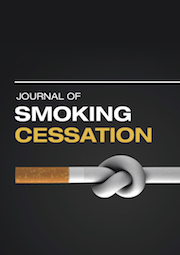No CrossRef data available.
Article contents
Understanding Former Smokers in Canada: Examining Who They are and When, Why and How They Quit
Published online by Cambridge University Press: 21 February 2012
Abstract
Objectives: Although the benefits of smoking cessation are well established, long-term abstinence from cigarettes is difficult for many smokers to achieve. We aimed to examine quit attempts, years since quitting and factors associated with long-term abstinence among former smokers. Methods: Data were from the 2006 Canadian Tobacco Use Monitoring Survey. Descriptive analyses were performed and logistic regression models were used to examine factors associated with long-term abstinence (more than 5 years) among former smokers. Results: In 2006, over one in four Canadians (27.1%, n = 7,200,000) aged 15 and older was a former smoker. The prevalence of former smoking was higher among men (30.9%) in comparison to women (23.4%). Former smokers who quit in the past 3 years or earlier were more likely to be older as well as have children younger than 15 in the household. Logistic regression analyses revealed that older age was a significant predictor of long-term abstinence from smoking. Conclusion: Our findings suggest that there are modifiable characteristics associated with long-term smoking abstinence that could be addressed by relapse prevention programming. Longitudinal data are warranted to further clarify the relationship between certain characteristic of former smokers and the duration of abstinence.
- Type
- Articles
- Information
- Copyright
- Copyright © Cambridge University Press 2009


